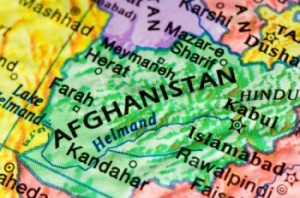Opium production is expected to rise 61 per cent this year in Afghanistan and the value of the crop will more than double, according to a United Nations report released Tuesday.
 The US-imposed drug enforcement and opium eradication programs have always had detrimental effects on Afghanistan and the region, wiping out the cash crop for poor Afghan farmers on the one hand and increasing profits in production and trade by restricting supply on the other.
The US-imposed drug enforcement and opium eradication programs have always had detrimental effects on Afghanistan and the region, wiping out the cash crop for poor Afghan farmers on the one hand and increasing profits in production and trade by restricting supply on the other.
Last year, opium production reached $605 million dollars worth. This year, the potential total value was estimated at $1.4 billion dollars, an increase of 133 per cent. The staggering increases in production and profits came despite a modest 7 percent rise in the total hectares under poppy cultivation – 131,000 hectares in 2011.
These record profits have fueled the insurgency, intensified government corruption, and increased instability. The attempt to crackdown on poppy production through essentially military force has only exacerbated the problem, incentivizing Afghans to take part.
‘The high sale price of opium in combination with lower wheat prices may have encouraged farmers to resume opium cultivation,’ the UN report said. Half the country’s 34 provinces are cultivating poppies, and 95 percent of the crop came from the nine most violent and unstable provinces, in the south and southwest.
This is just one aspect of the Afghan war gone terribly wrong, as the decade-long war has produced greater suffering and greater instability, and little else. The security situation in Afghanistan has deteriorated every consecutive year under Obama, and there is no end in sight.


